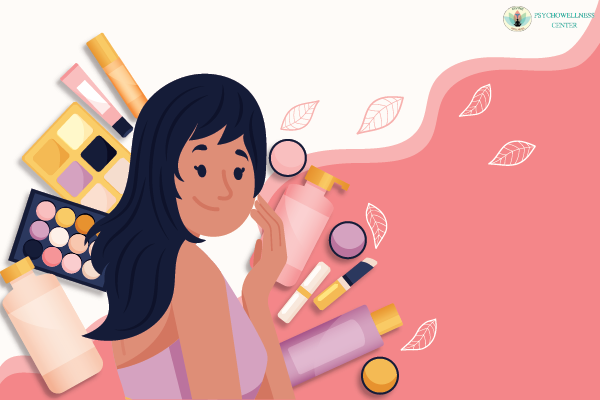The question of whether makeup can be considered therapeutic is a complex one that has been the subject of much debate and discussion. On one hand, makeup has been shown to have a positive impact on a person’s confidence, self-esteem, and overall mood. On the other hand, excessive use of makeup can also lead to feelings of insecurity, low self-esteem, and dependence. In this article, we will explore the concept of makeup as therapy, examining both the potential benefits and drawbacks of this approach.
Makeup as a Confidence Booster
For many people, putting on makeup can be a form of self-expression and a way to feel more confident and put together. A well-applied makeup look can help people feel more confident and empowered, giving them the motivation and energy to tackle the day ahead.
Research has shown that wearing makeup can have a positive impact on a person’s mood and self-esteem. In a study published in the Journal of Cosmetics, Dermatological Sciences and Applications, researchers found that wearing makeup was associated with improved self-esteem and a reduction in negative moods. This suggests that the act of applying makeup, as well as the end result, can be therapeutic for some people.
Makeup as a Tool for Self-Expression
Makeup can also serve as a tool for self-expression, allowing people to express their individuality and creativity. Through the use of different colors, textures, and techniques, people can use makeup to create a look that reflects their personality and personal style. This can be a form of self-expression that is both empowering and therapeutic.
Drawbacks of Makeup as Therapy
While makeup can have positive benefits for some people, it’s important to acknowledge that excessive use of makeup can also have negative consequences. For some people, makeup can become a source of insecurity, leading to feelings of low Self-esteem and dependence. This can be particularly true for those who feel that they need to wear makeup in order to feel confident or attractive.
The drawbacks of using makeup as a form of therapy can be significant and can have negative impacts on a person’s well-being. Here are drawbacks:
-
Dependence: For some people, makeup can become a crutch that they feel they cannot do without. This can lead to a dependence on makeup and a feeling that they cannot be confident or attractive without it. This dependence can be problematic and can lead to feelings of insecurity and low self-esteem.
-
Financial Strain: Makeup can be expensive, and for some people, the cost of constantly purchasing new products can become a financial strain. Additionally, the pressure to always look perfect and put-together, which is often perpetuated by social media and advertising, can contribute to excessive spending on makeup.
-
Comparison and Competition: Social media and advertising often promote unrealistic beauty standards, and this can lead to feelings of insecurity and low self-esteem or Depression at times. The constant comparison to others can be harmful and can contribute to negative body image and self-esteem.
-
Unrealistic Beauty Standards: The pressure to always look perfect and put-together can also contribute to unrealistic beauty standards. This can lead to feelings of anxiety and frustration, as well as the pressure to constantly reapply makeup and maintain a certain appearance.
-
Masking Emotional Issues: While makeup can be a temporary solution for boosting confidence and improving mood, it’s important to acknowledge that it may be masking underlying emotional issues. Using makeup as a form of therapy may not address the root cause of the problem, and it may be necessary to seek therapy from the Best psychologist delhi, Counseling psychologist or take advice from Online counselor at your convenience.
Additionally, the pressure to always look perfect and put-together, which is often perpetuated by social media and advertising, can contribute to feelings of insecurity and low self-esteem. This can lead to a negative cycle, where people use makeup to try and boost their confidence, but end up feeling even more insecure as a result.
In conclusion, makeup can be therapeutic for some people, but it’s important to approach the use of makeup in a balanced and healthy way. By using makeup as a tool for self-expression and a way to boost confidence, individuals can experience the potential benefits of makeup as therapy. However, it’s also important to be mindful of the potential drawbacks and to seek alternative forms of therapy or guidance by searching for the Best psychologist near me and self-care if needed. Additionally, it’s important to recognize that everyone is different, and what may be therapeutic for one person may not be for another.
For mental health therapy, you may also make an appointment with well-known, licensed psychologists at thePsychowellness Centre. Janakpuri, Dwarka, Faridabad, and Noida are just a few of the Delhi NCR sites for the facility.
Contribution: Dr (Prof) R K Suri, Clinical Psychologist, life coach & mentor TalktoAngel & Ms. Swati Yadav, Psychologist.

